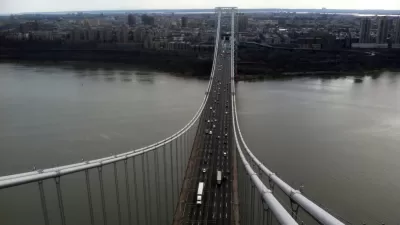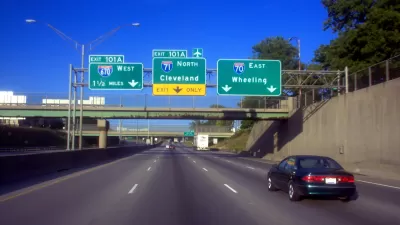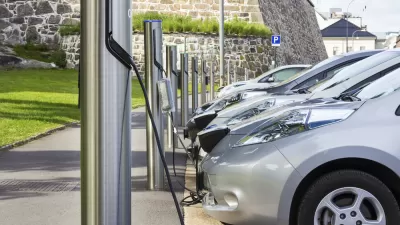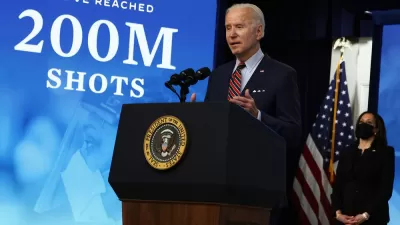To some, the agreement promises too much funding for traditional infrastructure programs rather than 'adaptations and innovations.'

[Updated July 20, 2021.]
Strong Towns' Charles Marohn argues that the proposals of the Bipartisan Infrastructure Framework will "make our infrastructure crisis worse." According to Marohn, "[s]hoveling unprecedented levels of funding into current programs prior to any serious work on reform is a terrible idea, regardless of who proposes it."
Assessing the funding outlined in the bipartisan compromise, Marohn writes:
While $5 million for active transportation sounds nice, you’ll find $4.2 billion for trunk highways in the bill. If the $5 million for Safe Routes for School gets you excited, perhaps you won’t mind the $1.7 billion for county state aid highways. That $57.5 million in bus rapid transit seems really progressive until it is compared to the $430 million being spent on municipal state aid routes (a program to essentially turn local streets into highways). Nearly half a billion dollars is going to the Department of Public Safety, with $226 million of that just for patrolling highways. We’re going to spend more in two weeks on highway patrols than we will spend in two years in the active transportation account.
Marohn proposes that "[o]ur top-down infrastructure programs need to shift to support maintenance, not expansion, and make room for the bottom-up adaptations and innovations needed to drive gains in productivity." Moreover: "[w]e should not be cheering on a bi-partisan consensus based on some simulacrum of reform while an overwhelming amount of spending is going to programs that are making us weaker as a country, as cities, and as neighborhoods."
FULL STORY: A Preview of Bi-Partisan Compromise on Infrastructure (Sorry, It's Not Good)

Planetizen Federal Action Tracker
A weekly monitor of how Trump’s orders and actions are impacting planners and planning in America.

Maui's Vacation Rental Debate Turns Ugly
Verbal attacks, misinformation campaigns and fistfights plague a high-stakes debate to convert thousands of vacation rentals into long-term housing.

Restaurant Patios Were a Pandemic Win — Why Were They so Hard to Keep?
Social distancing requirements and changes in travel patterns prompted cities to pilot new uses for street and sidewalk space. Then it got complicated.

In California Battle of Housing vs. Environment, Housing Just Won
A new state law significantly limits the power of CEQA, an environmental review law that served as a powerful tool for blocking new development.

Boulder Eliminates Parking Minimums Citywide
Officials estimate the cost of building a single underground parking space at up to $100,000.

Orange County, Florida Adopts Largest US “Sprawl Repair” Code
The ‘Orange Code’ seeks to rectify decades of sprawl-inducing, car-oriented development.
Urban Design for Planners 1: Software Tools
This six-course series explores essential urban design concepts using open source software and equips planners with the tools they need to participate fully in the urban design process.
Planning for Universal Design
Learn the tools for implementing Universal Design in planning regulations.
Heyer Gruel & Associates PA
JM Goldson LLC
Custer County Colorado
City of Camden Redevelopment Agency
City of Astoria
Transportation Research & Education Center (TREC) at Portland State University
Jefferson Parish Government
Camden Redevelopment Agency
City of Claremont





























